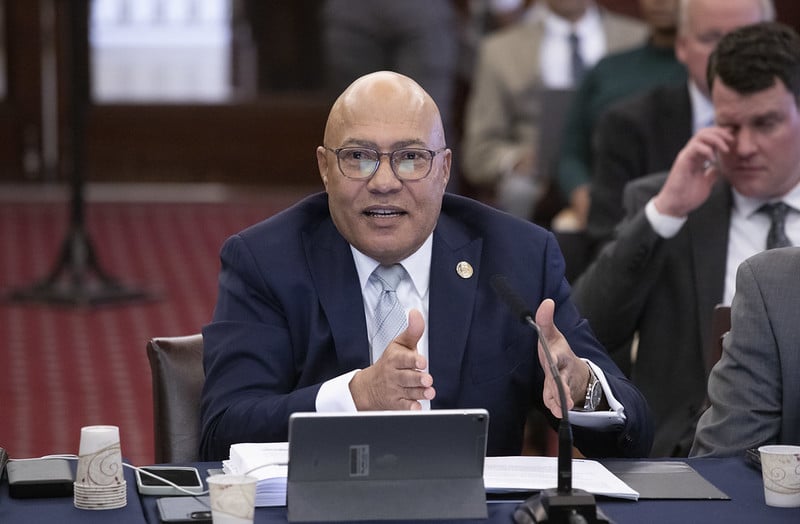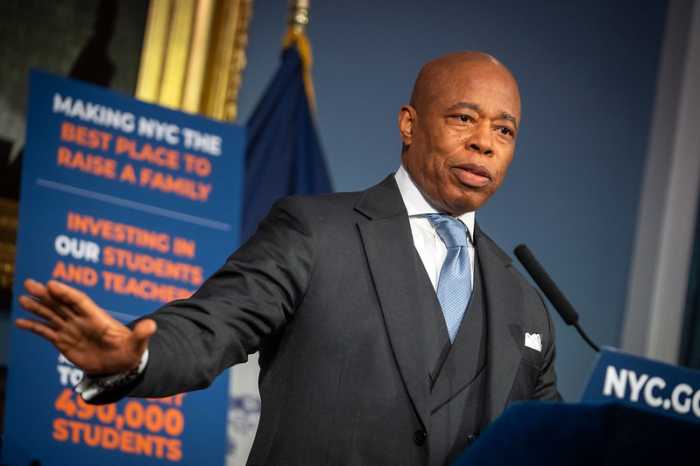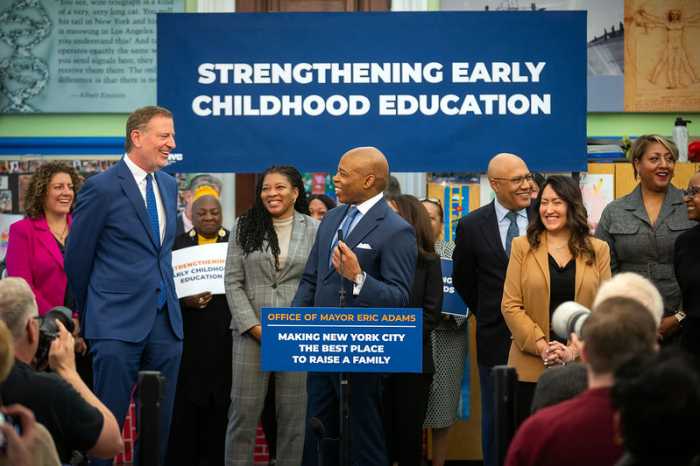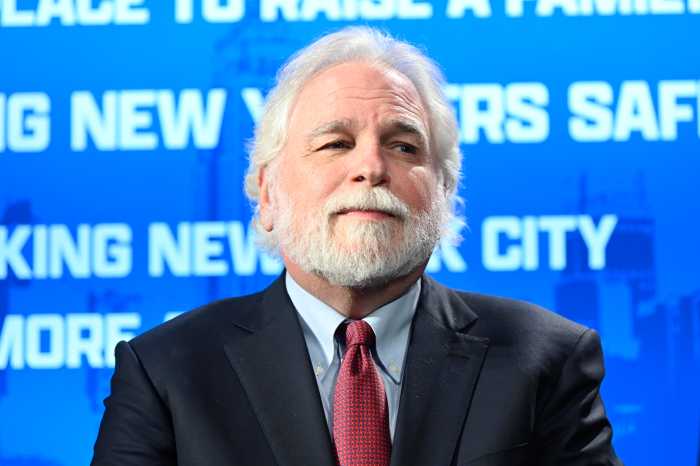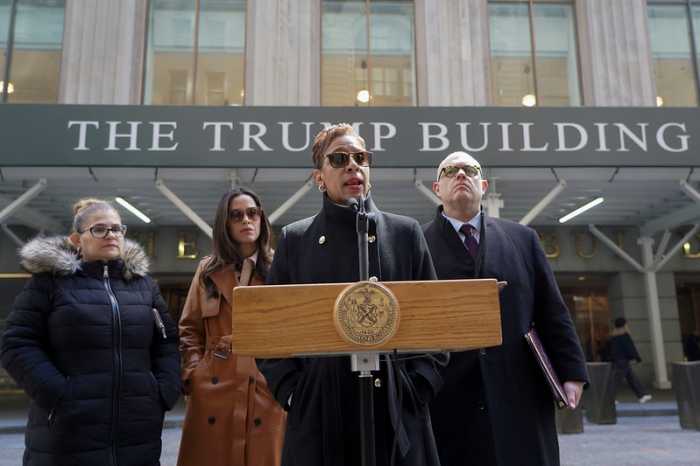Mayor Eric Adams’ Budget Director Jacques Jiha on Monday left open the possibility of restoring sizable budget cuts Hizzoner has implemented in recent months if “financial conditions improve” and the economy “remains strong.”
The mayor instituted two rounds of 5% across-the-board budget cuts — yielding $6.6 billion in savings — in November and January to balance the city’s finances, saying it was staring down a $7.1 billion deficit driven by spending on the influx of nearly 180,000 migrants.
Adams then moved to reverse some of the November cuts — to agencies including the NYPD, FDNY and Sanitation Department — in January and canceled another round of trims planned for April late last month, due to better-than-expected tax receipts and a plan to cut migrant spending by 30%.
Jiha made the comments while being grilled by City Council Speaker Adrienne Adams during the first in a series of annual council hearings analyzing the mayor’s $109.4 billion preliminary budget plan for the coming fiscal year — Fiscal Year 2025. The hearing sets up what is likely to be another fierce budget battle between the mayor and the council, with the restoration of past budget cuts taking center stage.
The speaker asked Jiha about the possibility of fully restoring the November and January cuts given new projections from the council that the city will raise $3.3 billion more in revenue for this fiscal year and the next than what was projected by the mayor’s Office of Management and Budget (OMB) last month. She said the council wants to see funding restored for various agencies and critical services, including the city’s Universal Pre-K and 3-K programs, CUNY and its three public library systems.
“There remain key agencies and service areas affected by the administration’s repeated cuts that are foundational to meeting the needs of New Yorkers,” the speaker said, during her opening remarks. “I believe our city has the flexibility to reverse many cuts that have been made, strengthen our city’s workforce and address our future fiscal challenges all while being fiscally responsible.”
The mayor and the council must reach a deal on a budget for the next fiscal year by a June 30 deadline.
But when Jiha was asked numerous times, by the speaker and other council members, about the possibility of further restoring cuts, he said it depends on whether the city’s fiscal outlook continues to get better.
“If financial conditions improve and the economy remains strong, we will work with the council, as we always do, to look at the priorities of the council and the administration, and then to see what can be fully or partially restored,” Jiha said. “At this point in time, I cannot tell you, because we already revised up our forecast based on the stronger-than-anticipated economy that we had at the end of 2023.”
Leaders of the council have maintained that because the body also projected higher tax revenues than OMB late last year, a forecast that was then surpassed by OMB’s January projection, the city had enough money all along and the cuts were unnecessary.
City Council Finance Chair Justin Brannan pointed out that the body had highlighted its own rosier revenue forecast in a similar hearing just three months ago, while urging the administration to take a more targeted approach to cutting expenses.
“At the time, we noted that the administration was operating on outdated information, and we forecasted that city revenues would be significantly higher than what the administration was pointing to as the reason for the proposed cuts,” Brannan said. “In the months since, bit-by-bit the administration has indeed reversed course.”
But Jiha pushed back on the council’s argument that there was enough money all along to avoid making the budget cuts. He said that the nearly $3 billion in additional revenue projected by the administration in January still would not have been nearly enough to close the $7 billion gap.
Additionally, Jiha said, OMB has to be “extremely conservative” with its revenue projections because it cannot afford to make mistakes.
“You are always better off being conservative because you are making long term decisions based on a forecast,” Jiha said. “And if the economy is stronger than you anticipate, it’s icing on the cake.”



